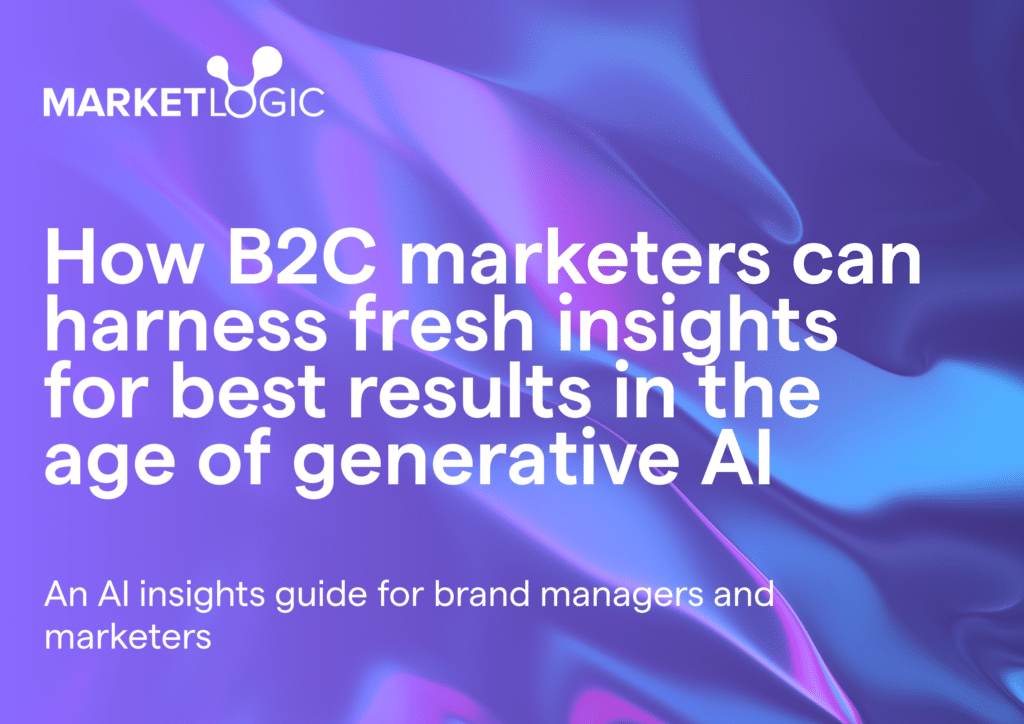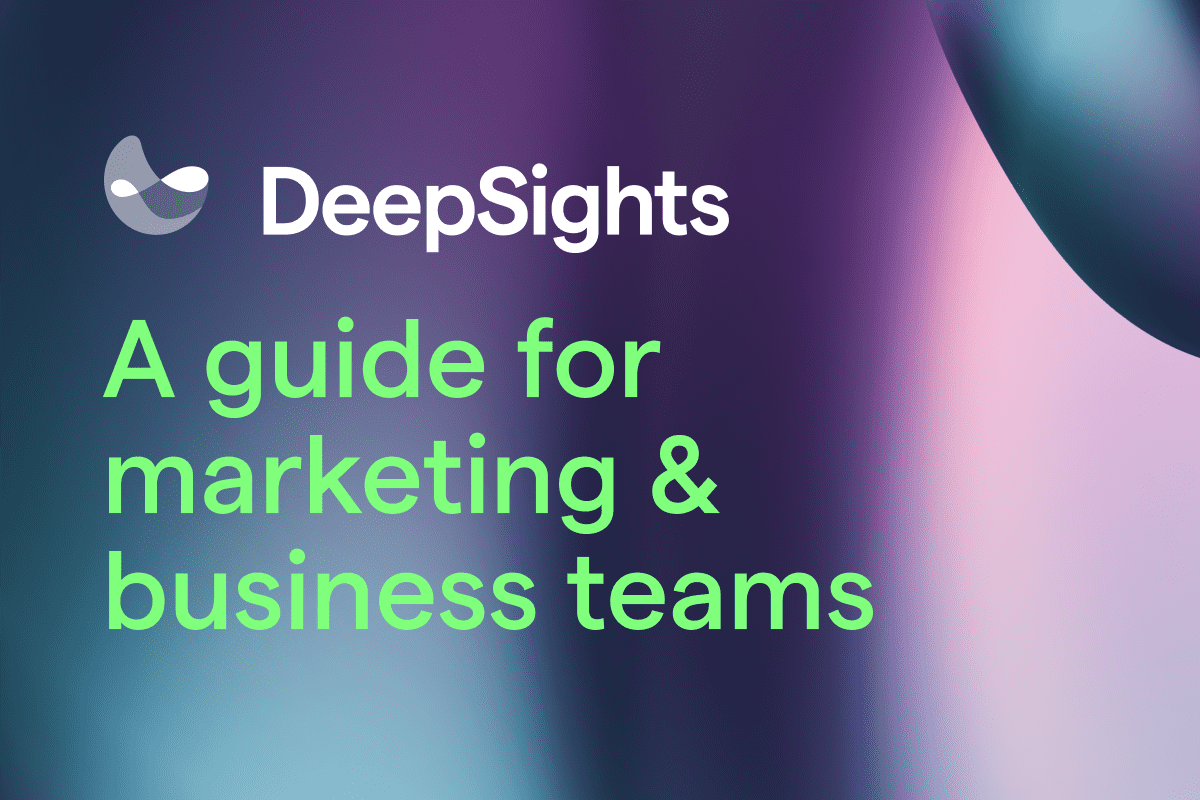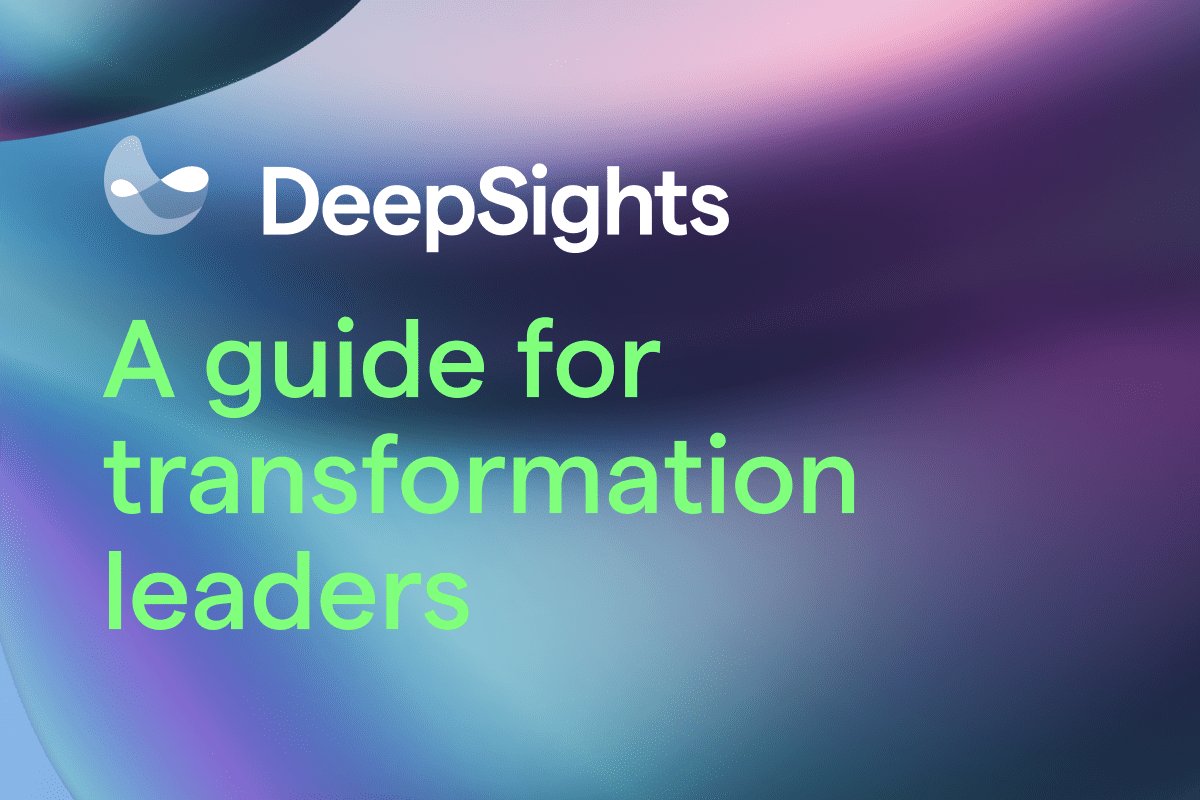Top three tips to take your marketing strategy to the next level
Generative AI’s impact on marketing is undeniable, but its potential is largely untapped by marketers. If you are a B2C marketer or brand manager, learning what gen AI can do for you across all fronts — from optimizing workflows to enhancing campaign concept generation — is a crucial step to stay ahead of competitors in a saturated and unpredictable market.
Our latest whitepaper, “How B2C marketers can harness fresh insights for best results in the age of generative AI,” dives into recent surveys and stats on the state of generative AI in marketing, and it serves as a guide for brand managers who want to see better results from their marketing strategy by leveraging AI insights. This blog highlights key points from the whitepaper, but be sure to download it here for full details, stats, and tangible use cases.
1. Learn about the state of generative AI in marketing

As uncovered in recent industry surveys and studies, research suggests marketers are using generative AI for their work, and that they plan to use it more. For example, one survey by Capgemini found that more than 62% of marketers worldwide are already using generative AI for data analytics, concept creation, brand metric tracking, and more.
Brand managers who harness the power of generative AI can gain significant advantages in customer-centricity, productivity, and hyper-personalization, reshaping their marketing workflows from end to end. A study by Harvard Business School showed that generative AI can help people complete marketing tasks 21.2% faster and at 40% higher quality than those not using these tools. Companies successfully implementing AI for personalization report up to 40% higher revenue growth, MicKinsey shares.
But being aware of AI tech and having access to it doesn’t automatically translate to better results for marketers.
While leveraging customer insights is critical to gaining an advantage in markets, B2C marketers say insights-driven decision-making is a top challenge. Some common barriers to insights-driven decisions are:
- Siloed data: Internal silos and poor integration hamper data availability.
- Data volume: Managing the exponential growth of customer data is overwhelming for many teams.
- Lack of accessibility: Insights are often not available at the point of need, hindering decision-making.
But generative AI is poised to change that reality. One BCG study reports 51% of CMOs around the world are already leveraging generative AI for insights generation. WARC research says 58% of marketers in the US expect the task of analyzing market data and performance to change the most due to generative AI.
2. Uncover the advantage of proprietary AI insights for marketing
As a marketer, you need easy access to accurate insights that are integrated directly into your workflow. And while generic tools like ChatGPT are easily accessible, they can’t provide the differentiated advantage you need in today’s competitive B2C landscape.
To gain an edge, B2C marketers such as yourself need specialized AI insights assistants that are wired directly into your company’s proprietary data. That way, you can get tailored, trustworthy insights for better daily decision-making.
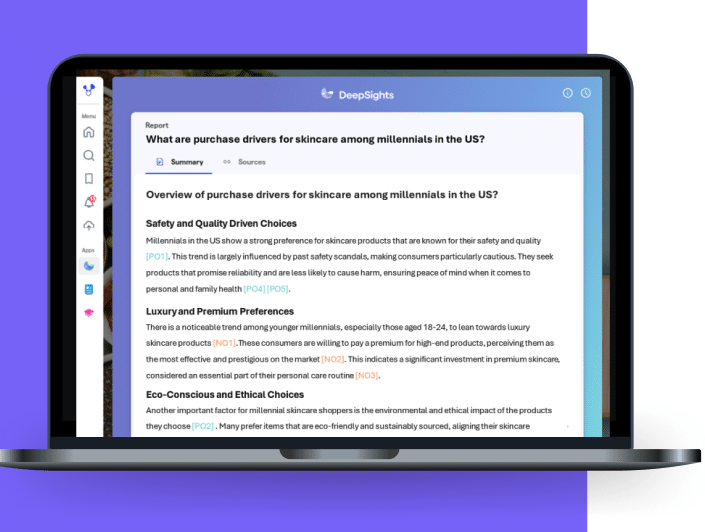
A purpose-built specialized generative AI assistant like DeepSights™ is designed to help B2C marketers and business users draw accurate answers from 100% of your company’s trusted insights knowledge base of internal and external sources. It leverages Natural Language Processing (NLP) to synthesize data at scale. Then it uses a gen AI technique called Retrieval-Augmented Generation (RAG) to leverage the power of Large Language Models (LLMs) alongside your organization’s proprietary data. As a result, you are able to swiftly tap into trusted, organization-specific data sources to gain a deeper understanding of customer behaviors — and then, share these findings with your team in a one-click report.
When generative AI tools are integrated with Microsoft Teams and Google Chat, organizations can create a seamless flow of insights that cuts through data silos and delivers the market knowledge needed to drive winning strategies.
To summarize: Better insights lead to better decision-making throughout your marketing campaigns, and gen AI assistants can supercharge your insights-driven marketing. But we know it can be confusing to get started with understanding the AI topic and how it relates to business performance. So to help you, we’ve put together a clear explainer of what makes a good AI vs. not-so-good-AI here.
3. Discover tangible use cases for generative AI in marketing workflows
Using gen AI, brand managers and marketers like yourself can effectively leverage AI-powered insights to banish brand fatigue and freshen up marketing concepts with unique themes on par with customer preferences.
- Use case: Insights-powered concept generation
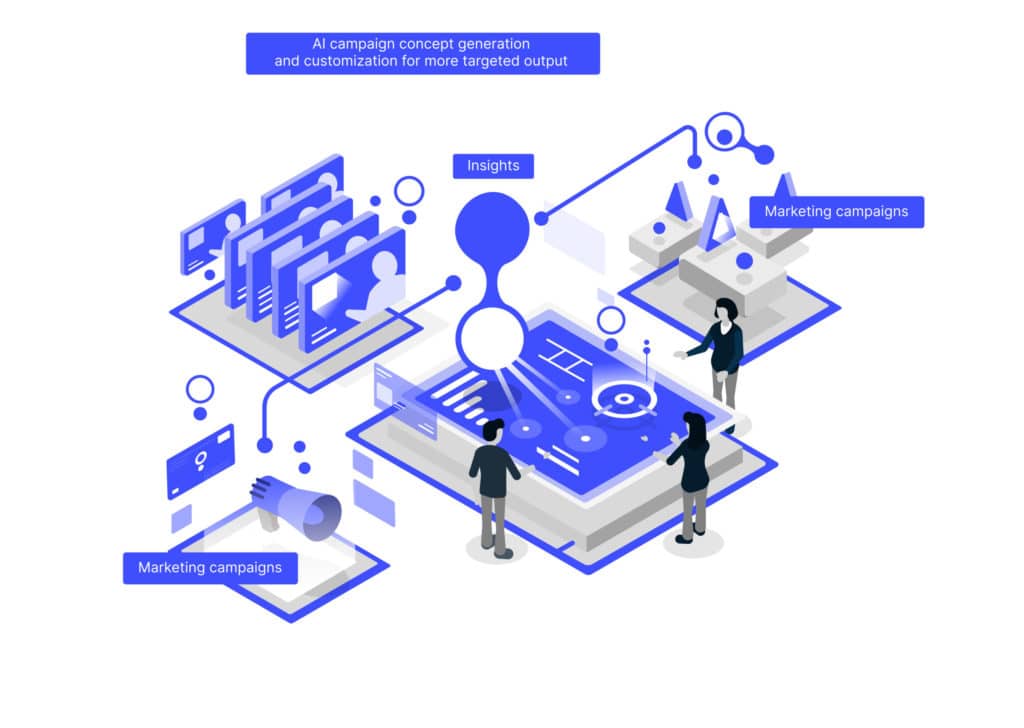
Picture this use case: A marketing team for a skincare brand has noticed a decline in customer engagement and sales over the past four weeks. So they want to now get ahead of any chance of brand fatigue by freshening up their marketing to re-engage their core demographic, millennials living in the US.
By using generative AI, they can discuss the problem on Microsoft Team; then ask their specialized AI insights assistant: “What do millennials in the US care about when it comes to purchasing skincare products?”
Within minutes, the gen AI assistant reviews all the company’s data and knowledge assets. It then responds with a natural-language answer that summarizes top themes and cites its sources. With these insights, the team is well-equipped to craft a tailored campaign. Keep reading the use case in our whitepaper to learn how the team uses gen AI to produce a range of concepts, based on different customer insights. And it doesn’t end here: As the campaign runs, the gen AI assistant can also use insights from earlier marketing campaigns to improve the base for their next campaign.
- Use case: Insights-driven opportunity identification

As a B2C marketer, you can also use generative AI to uncover hidden market opportunities by analyzing emerging consumer trends and understanding spending behaviors.
In another scenario highlighted in our whitepaper, a kitchen appliance brand sought to expand its espresso machine sales in the midst of economic uncertainty. By querying their generative AI assistant about emerging consumer trends, they learned of a “treat culture” on social media, where consumers indulge in small luxuries despite tighter budgets. The insights identified an opportunity to position their machines as an affordable luxury for barista-quality coffee at home. With these insights, the brand manager reframed their campaign to reflect self-care and affordability, appealing directly to cost-conscious consumers seeking quality specialty drinks.
Get the full use cases, with a step-by-step breakdown of how to leverage gen AI. Don’t miss out on these thought-provoking generative AI scenarios for marketers and actionable tips for embedding generative AI in your marketing strategy.
Download the must-have whitepaper for B2C marketers today
As you can see, generative AI for insights is becoming an integral part of any marketers’ strategy. When used effectively, it has the potential to support and enhance their work at every stage, leading to better results.
For more information on how you can integrate generative AI seamlessly into your marketing workflows, gain competitive insights, and unlock innovative strategies to boost your ROI, read our must-have whitepaper for marketers and brand managers. It will guide your team through the nuances of adopting AI for insights-driven decision-making, so you can ensure your marketing campaigns are backed by trusted data and relevant trends.
Get instant access to the whitepaper now and embark on your journey toward becoming an insights-driven marketing powerhouse:
